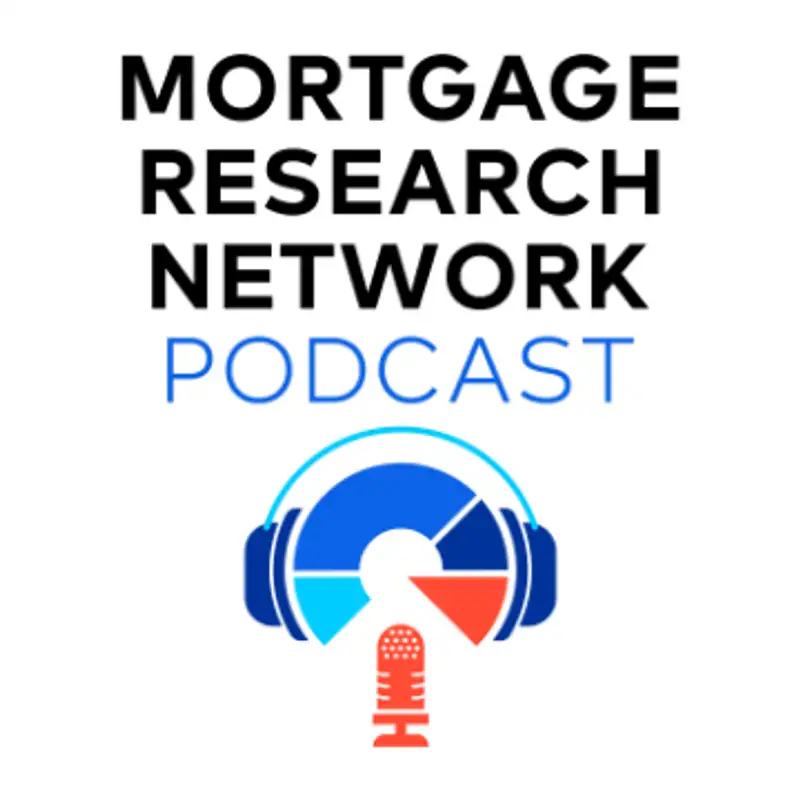Home Price Slowdown: Buyer’s Window or False Dawn?
Welcome to the Mortgage Research Network Podcast. Just a note that this podcast audio is AI-generated, but the article on which it's based was produced by people. Content is also reviewed for accuracy. And your hosts, Tim and Craig, are real people. Without further ado, let's get into today's topic.
I'm your host, Tim Lucas, editor of MortgageResearch.com and a former mortgage professional, and with me is loan originator Craig Berry.
Hi everyone. Today we're talking about a major curveball for the housing market. Freddie Mac slashed their 12 month home price growth forecast from 4.2% to just 1.3%. That's a dramatic shift that could completely reshape who gets to buy a home in America.
Those numbers really paint a different picture than what we've been seeing. What do you think triggered such a dramatic revision in their outlook?
Well, when you look at the data, it's fascinating. The Federal Housing Finance Agency reported prices actually fell 0.2% in May, and the S&P CoreLogic Case Shiller Index shows just a 2.25% increase over the past year, way down from the unsustainably high 8.67% annual rate we've seen over the last five years.
And then you've got these regional variations that make it even more interesting.
EXACTLY. take Austin, Miami, Chicago, Los Angeles, and Denver. They're all seeing price decreases between 4 and 5 percent. But here's what's wild. at the same time, some markets in the Midwest and Northeast are still seeing significant gains.
So it's like we're watching two completely different housing markets play out simultaneously. So are these falling markets opportunities for first time buyers?
Not necessarily. If rates drop and too many buyers flood the market, they could inadvertently push prices right back up again.
Wow, it's really all or nothing, isn't it?
Right. Mortgage rates affect so much. And like we talked about in the last episode, 30 year fixed rates are hovering around the mid sixes thanks to a weak jobs report. And look at what's happening with sales volumes. the National Association of Realtors reported a 2.7% decrease in existing-home sales, while new single-family house sales dropped 6.6%. That's sending some pretty clear signals about where the market might be headed.
Though I imagine some buyers might see these forecasts as a reason to jump in quickly before conditions change again.
You know what's fascinating about that? The psychology of these forecasts can actually influence buyer behavior. When major institutions like Freddie Mac revise their predictions so significantly, it can create this feedback loop between market expectations and actual outcomes.
The complexity of all these different factors really shows why it's so challenging to make broad predictions about "the housing market" as a whole.
And that brings us to what might be the most important takeaway. this isn't just about national trends anymore. What's happening in Miami might be completely different from Minneapolis, and even within cities, you can have totally different scenarios playing out neighborhood by neighborhood.
So if you're thinking about buying or selling, local market research becomes even more crucial now.
Absolutely right. And here's something else to consider. different property types are behaving differently in this market. Starter homes might follow completely different patterns than luxury properties, and condos might trend differently than single-family homes.
That really brings home why this is such an important moment for potential buyers to be doing their homework.
You know what this reminds me of? It's like trying to catch a wave. you need to paddle at just the right moment, but you also need to know which beach has the best conditions for your skill level. That's the kind of nuanced understanding buyers need right now. That's all the time we have for this topic, but we go into even more detail on the site. To learn more, go to Mortgage research.com and type slower home price growth in the search bar on the homepage. We'll see you next time on the Mortgage Research Network Podcast.
